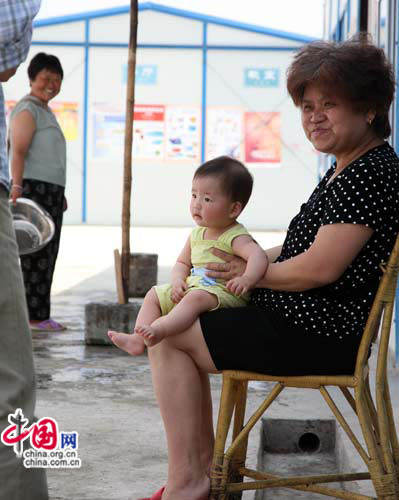New issues
However some new issues have required the government's attention in the course of the temporary dwellings project.
"The primary question is how to choose and pay for land," said Wang Rui, chief of the Mianzhu Construction Bureau.
The Ministry of Construction's regulations require that pre-fabricated houses should be provided in accordance with the requirements of the reconstruction plan. These include: land on which there are existing building plans cannot be used; land must be safe; water source areas should be protected; a safe distance from dilapidated buildings must be maintained; natural drainage systems must be protected; areas should be selected on the basis that they are close to existing dwellings and have public facilities.
Wang Rui acknowledged the enormity of the task and confirmed that the Mianzhu government has designed its regulations to meet this challenge.
Transportation of building materials has added to the problems requiring attention.
Wang Rui told China Economic Weekly that Mianzhu railway station is small and lacks heavy cranes, interfering with the efficiency and scheduling of the construction work. "The Ministry of Railways has made a priority of this issue and has allocated heavy cranes to Mianzhu," Wang was quoted as saying.

At Dujiangyan City, the construction of resettlement communities is also dealing with problems as they arise. On May 26, the second day after the "Happy Home" community was put into use, Xiao Hong, chief of the Dujiangyan’s Health Bureau told China Economic Weekly that there were about 1,000 medical staff to cover the whole city with the aim of epidemic prevention. “The top issue on the agenda at the moment is establishing a long-term process,” Xiao said in a serious tone.
Xiao also stressed that construction and management of transitional resettlement houses should be improved continuously from the existing base, ensuring epidemic prevention and supervision work be carried out in strict accordance with official standards.
(China.org.cn by Wang Wei, Yan Pai, Wu Huanshu and Xiang Bin, June 14, 2008)